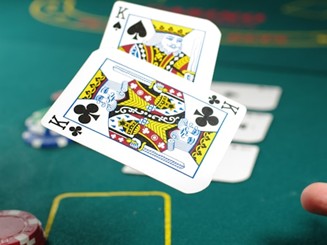
Gambling has long been dominated by games of chance - where spinning reels, bouncing dice, and shuffled cards decide your fate. But as a new generation of gamblers enters the scene, the industry is evolving. Skill-based games are gaining traction, blending strategy, interactivity, and entertainment in a way that’s transforming how people engage with gambling.
Today’s players want more than just luck - they’re looking to influence outcomes and enjoy a more immersive experience. This shift is reflected in gaming destinations across the country, from casinos in Kansas to the Vegas strip. The following article explores what sets skill-based games apart from traditional ones, and how they’re shaping the future of the betting experience.
Skill-based gambling incorporates elements of player skill into the outcome, meaning a player’s decisions, reflexes, or strategy can influence their chances of winning. This is in contrast to traditional games of chance like slots, roulette, or craps, where outcomes are determined entirely by random number generators (RNGs) or probability.
While games like poker and blackjack have always allowed for a degree of skill, the new wave of skill-based games goes further, merging video game-style mechanics with real-money gambling. Think arcade shooters, racing games, puzzle challenges, or strategy-based wagering.
These games are designed to attract a younger, more interactive audience, especially Millennials and Gen Z, who have grown up on video games and mobile apps.
The traditional betting model isn’t dead, but it’s evolving and for good reason:
Millennials (born 1981–1996) and Gen Z (1997–2012) represent a growing portion of the gambling market. These groups have very different expectations from previous generations. They value:
Traditional slots and table games often don’t meet those expectations.
Modern video games, especially free-to-play mobile games, offer immersive experiences, social elements, and skill-based progression. Casino operators see an opportunity to bring those elements into gambling environments to stay relevant and competitive.
While slot machines remain profitable, they’re increasingly popular among older demographics. Younger players are less likely to spend long hours at a machine that doesn’t reward skill or strategy. Skill-based games aim to fill that gap.
Regulators have started to allow skill-based elements in slot machines and other gambling platforms. This regulatory shift has opened the doors for new game designs and innovation.
These hybrid machines look like traditional slots but feature interactive bonus rounds where skill influences the payout. For example:
The outcome of the base game remains RNG-based, but skill elements determine bonus rewards.
Games modeled after arcade classics like Space Invaders, Guitar Hero, or Pac-Man allow players to wager on their performance. The better you play, the higher your payout potential.
Skill-based competitions such as:
These involve direct head-to-head skill competition, often regulated separately from traditional gambling.

Online platforms let players compete in skill-based games like word puzzles, trivia, or card games for real cash prizes. While not always considered gambling in a legal sense, they occupy a similar entertainment space.
Most skill-based gambling games blend chance and skill in a way that remains fair and regulated. Here's how:
Games must ensure that skill affects outcome, but not so much that they become purely skill contests (which would classify them differently under law). Most still rely on RNG for base game outcomes to ensure fairness and compliance.
Traditional slots have fixed RTP values (e.g., 95%). Skill-based games offer variable RTP, meaning better players can increase their RTP through skilled play, while some games offer “minimum” and “maximum” RTP depending on performance.
Regulatory bodies require games to be fair and not misleading.
Games undergo rigorous testing to ensure that skill-based outcomes are transparent and quantifiable.
Players spend more time on skill-based games because they feel in control and challenged. This engagement can lead to higher revenue for casinos over time.
These games attract both casual gamers and gambling enthusiasts, tapping into a new, younger market that traditional slots struggle to reach.
Multiplayer options, leaderboards, and tournaments create social competition, something that classic games rarely offer.
Games with skill elements provide incentive for improvement, making players more likely to return and play again.

The legal status of skill-based gambling varies significantly across jurisdictions. Some states or countries may not permit it, or may classify it differently than traditional gambling.
Some players may not fully grasp how skill influences outcomes, leading to misconceptions or unrealistic expectations.
If high-skilled players dominate leaderboards, casual players may feel discouraged, potentially reducing broad appeal over time.
Gambling facilities rely on the house edge to ensure profitability. Skill-based games may reduce this edge for skilled players, creating tighter margins unless well balanced.
The rise of skill-based games represents not just a trend, but a transformation in how gambling is designed and experienced. Moving forward, expect to see:
The industry is watching closely to see whether skill-based games can not only bring in new audiences but also sustain long-term profitability.
Skill-based gambling is more than a novelty - they’re a response to evolving player expectations and the changing face of entertainment. As technology advances and regulatory environments adapt, the line between gaming and gambling continues to blur.
For players, these games offer a compelling alternative: the thrill of wagering combined with the satisfaction of mastering a challenge. For casinos, they offer a lifeline to a younger, more tech-savvy audience.
One thing is certain: the future of gambling won’t be defined by spinning reels alone, it will be shaped by skill, strategy, and a whole new kind of gameplay.